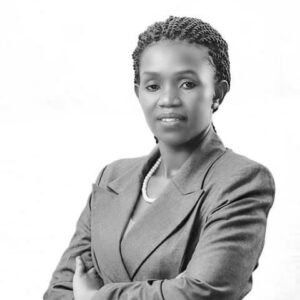
I am based at CHDC of Makerere University. I am currently doing a Master Public Health. I have 12 years of experience working in the field of Communications and Public Relations and I am looking forward to becoming a Specialist in Public Health Communications because I believe that communication is becoming key for all national and international health organizations.
Looking at the communication during the Covid-19 pandemic in Uganda, I am a bit worried about the current situation. At the beginning, there was a lot of information about the disease. All media houses were covering the pandemic. There was a lot of communication. This is not the case at the moment. People are not given adequate information on vaccines or on free testing anymore. At the beginning, the information was not just churned out, but it also reached the publics.
The pandemic came in towards election time and the population was so fed up of the government and rarely listened to or believed anything they said. But then Covid-19 came and everybody paid attention. The public including the opposition was listening and wanted to work along with the government to deal with the crisis. There was unity and everyone followed the SOPs whole-heartedly. People knew how to protect themselves. They were absorbing everything. Government received lots of support to help with efforts to face the crisis. People donated money. People gave their life savings to the government. Even the poor men and women in the villages, would give as little as 2000 UGX, to support the government in dealing with the crisis. Food, cash, and items like cars, were donated to the government towards this cause.
However, the government lost people’s trust when investigations showed that they could not account for the money that individuals and, local and international organizations had donated. People felt that maybe this virus is serious, but the government doesn’t really care about its people. The government had budgeted for masks but could not provide them and neither could they provide food for those in difficult situations. The people looked at the actual costs for tests, masks and so on, and wondered where all the money had gone to. So, people started to become suspicious and cynical. This now is a problem. How is government going to win people’s support for facing any possible next wave?
In this research I am interested in the ways costs have been limiting people‘s access to Covid-19 health services. Without testing we do not know where we stand in the fight against this pandemic. Furthermore testing is free at various government hospitals, but most people don’t know about this and still believe that testing is expensive. This is a problem of communication. I am not aware that communities have been informed properly about the availability of free testing. We need to explore how communication can be improved in these areas. The problem is, of course, that we as researchers probably, always look at what went wrong and focus on the gaps. However, we should not lose sight of what went well and what we can learn from this.